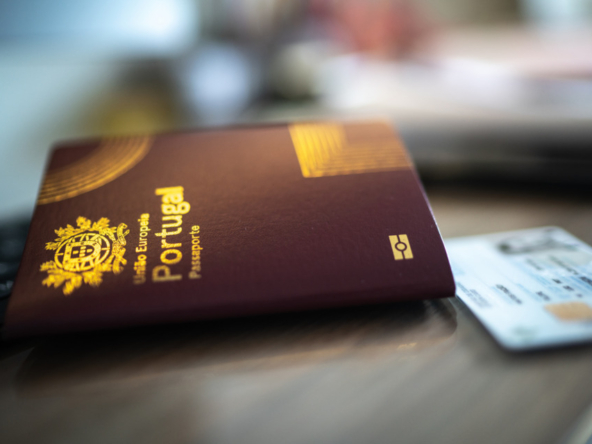Understanding the Buying Process in Lisbon Properties: A Concise Guide
Lisbon, the picturesque capital of Portugal, has gained considerable attention in recent years as an attractive destination for property investment. From its colourful, historic neighbourhoods to its bustling modern districts, the city offers a diverse range of real estate options for both seasoned investors and those seeking a more comfortable lifestyle. With an ideal climate, rich culture, and affordable cost of living compared to other European cities, it’s no wonder that many are looking to explore the possibilities of property ownership in Lisbon.
However, navigating the process of purchasing property in a foreign country can feel daunting, particularly for those who are unfamiliar with the local regulations and procedures. In Portugal, the process is regulated and handled by government officials, lawyers, and notaries, providing a level of assurance for foreign investors. It is crucial to have a comprehensive understanding of the steps involved in the buying process, from obtaining a Portuguese tax number to signing the final deed, in order to successfully acquire property in this captivating city.
In this article, we will focus on demystifying the buying process for Lisbon properties, ensuring potential buyers are well-equipped with the knowledge required to make informed decisions. As the market continues to evolve, gaining a deeper understanding of the various aspects related to property investment in Lisbon will prove invaluable for those aiming to secure lucrative and rewarding opportunities in this thriving European capital.
Lisbon Real Estate Overview
Lisbon, the capital city of Portugal, has experienced a resurgence of interest in its real estate market in recent years. This growth is primarily driven by increasing tourism, economic recovery, and a favorable investment climate, positioning Lisbon as an attractive destination for property buyers.
The Lisbon real estate market has evolved into a dynamic hub for both domestic and foreign investors, as well as for those seeking a new home or a second residence. Real estate opportunities in Lisbon vary from luxurious waterfront properties to charming apartments in historical neighbourhoods. The city’s diverse offerings cater to the unique preferences and budgets of potential buyers.
Economic growth in Portugal has bolstered the appeal of Lisbon properties. The Portuguese economy has recovered from the financial crisis, demonstrating resilience and continued expansion. This resurgence has positively influenced the real estate market, attracting investors and homebuyers alike.
Tourism plays a significant role in Lisbon’s real estate market, as the city continues to attract visitors from around the world. This influx of tourists has spurred demand for short-term rental properties and created new property investment opportunities. Additionally, various incentives for foreign investors, such as tax benefits and residency programs, have contributed to the heightened interest in Lisbon’s real estate.
In conclusion, the Lisbon real estate market offers a diverse range of opportunities for prospective buyers and investors. Its unique blend of historical charm and modern development, combined with a thriving economy and booming tourism sector, make it an appealing choice for those seeking property in Portugal.
How to Invest in Lisbon Property
Investing in Lisbon’s property market can be a profitable endeavour for both rental income and capital appreciation. This vibrant city offers plenty of opportunities for property investors, but before getting started, there are some essential steps to follow. This section will provide essential guidance on investing in Lisbon properties, focusing on the process of obtaining a NIF number and opening a Portuguese bank account.
Obtaining a NIF Number
A NIF (Número de Identificação Fiscal) number is a mandatory requirement for any property investment in Portugal. This unique identifier is used by the Portuguese tax authorities to track financial transactions and is required for several purposes, such as opening a bank account or purchasing real estate.
To obtain a NIF number, you can either apply in person at a local tax office (Finanças) or do so through a Portuguese lawyer or tax consultant. The process involves providing a valid form of identification (passport or national ID card) and a proof of address. The NIF number is usually issued on the same day of application, allowing you to proceed with your investment activities swiftly.
Opening a Portuguese Bank Account
Opening a bank account in Portugal is another crucial step for foreign investors aiming to invest in Lisbon property. This account is required for most real estate transactions, including mortgage payments and property taxes. Moreover, it simplifies the management of rental income or investments in Portugal.
To open a Portuguese bank account, non-residents must provide the following documents:
- Proof of identification (valid passport or national ID card)
- Proof of address (e.g., a recent utility bill)
- NIF number
It is advisable to research different banking options and choose a bank offering services tailored to non-residents and investors. Once the account is opened, investors can transfer funds to Portugal and proceed with their property investments with ease and confidence.
The Lisbon Buying Process
Working with Real Estate Agents
When purchasing property in Lisbon, it’s advisable to work with professional real estate agents. They have in-depth knowledge of the local market and can help you identify potential investments. Agents often have access to exclusive listings and can provide valuable guidance throughout the buying process1.
Legal Requirements
Foreign nationals can purchase property in Lisbon without any specific restrictions2. However, you must obtain a Portuguese tax number (NIF) before entering into any real estate transactions. The NIF is required for tax purposes and can be acquired from local tax offices or through a legal representative in Portugal3.
Paperwork and Contracts
The paperwork involved in purchasing property in Lisbon includes the following steps:
- Obtain a tax number (NIF) as mentioned above.
- Conduct a thorough due diligence process to verify the property’s ownership, liens, and potential legal issues4.
- Sign a preliminary contract (Contrato de Promessa de Compra e Venda) between the buyer and seller, outlining the terms and conditions of the sale5.
- Pay a deposit, usually ranging from 10% to 30% of the property’s value, to secure the agreement. This deposit is typically held in an escrow account until closing6.
Closing and Transfer of Property
Once all paperwork is completed and the necessary checks have been carried out, the final stage of the buying process is the closing. This involves signing a definitive contract (Escritura Publica de Compra e Venda) in front of a Portuguese notary7.
The notary will then register the transfer of the property, and the remaining balance (if applicable) is paid to the seller. Finally, the new owner must register the property with the Portuguese Land Registry8.
Footnotes
- An Expert Guide to Buying Lisbon Real Estate – GoldCrest ↩
- Buying Property in Lisbon: The Ultimate Guide | Get Properties ↩
- Guide to buying property in Lisbon – ATHENA ADVISERS ↩
- Navigating the Lisbon Property Market: A Comprehensive Guide to Buying … ↩
- An Expert Guide to Buying Lisbon Real Estate – GoldCrest ↩
- Buying Lisbon Real Estate – An Expert Guide | Goldcrest ↩
- Guide to buying property in Lisbon – ATHENA ADVISERS ↩
- Navigating the Lisbon Property Market: A Comprehensive Guide to Buying … ↩



